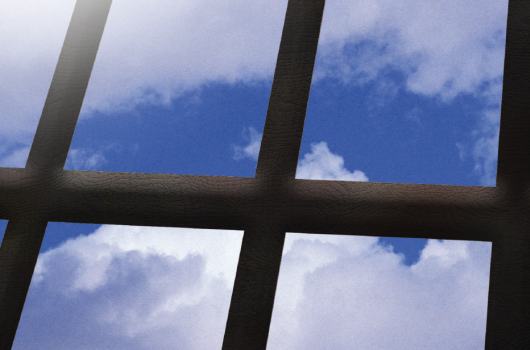Mental Health and Incarceration

The question in the application to participate in our mentoring program was, “If you are receiving any psychiatric treatment, please describe.” Her response was succinct. “I take psych meds when not pregnant and go to regular therapy.” At the time she filled out her application, Susan (not her real name) was both incarcerated and pregnant. Consequently, she was confined in a women’s detention center without benefit of the many medications she was taking for bipolar disorder, social anxiety, multiple personality disorder, and attention deficit disorder. It was remarkable that she was able to meet with me and carry on a coherent conversation.
Susan’s situation is not an uncommon one in our prison and jail system. In a 2006 Special Report, the Bureau of Justice Statistics (BJS) estimated that 705,600 mentally ill adults were incarcerated in state prisons; 78,800 in federal prisons; and 479,900 in local jails. In addition, research suggests that “people with mental illnesses are overrepresented in probation and parole populations at estimated rates ranging from two to four times the general population” (Prins and Draper, 2009). Growing numbers of mentally ill offenders have strained correctional systems, according to the National Institute of Corrections.
Inhumane Choices
We now know that many people who end up incarcerated suffer from co-occurring disorders, which are defined by The Substance Abuse and Mental Health Services Administration (SAMHSA) as “the coexistence of both a mental health and a substance use disorder.” In Susan’s case, she was imprisoned because of her heroin addiction. As in her situation, the staff and personnel in jails, prisons, and detention centers are ill-equipped or untrained to effectively serve people who reside in this population.
Time after time, I have met with people who are incarcerated who have to make choices about which medication they will be given because of policies that allow only one medication to be dispensed. In many ways, requiring such a choice can be inhumane. Alternatives are offered. Stay in this substance abuse program with more freedom, or return to a more restrictive prison mental health facility. The choice is seen as no choice at all.
Still, 95 percent who suffer from these disorders who have been locked up are among those who return to our communities. Needless to say, many are woefully ill-equipped to manage a healthy, productive lifestyle once they are released from places of incarceration. Who steps forward to provide assistance and guidance?
In Susan’s case, it was a small group of trained mentors. I laughed when one of the men in the group, a single man in his fifties, with no children of his own, texted me while he was sitting in the parking lot of a big box store where he had taken Susan to get supplies for her newborn baby. He texted me hoping that the baby he was holding in the car didn’t need a diaper change! He and the others from three different Disciples of Christ churches were wrapping their collective arms around Susan as she was transitioning back into the community with her daughter.
But what of the thousands who return to the streets without benefit of such loving and caring support group? What is the role of the church? What is expected of the followers of Jesus?
Thinking Differently about the Prison Population and Mental Health
On Wednesday, May 25, 2016, 1:00 p.m. CST / 2:00 p.m. EST, the NBA Mental Health and Congregational Care and NBA Prison and Jail Ministries Affinity Groups will offer the first of three in a series of webinars addressing various issues related to the complex and longstanding relationship between prison and mental health. The first webinar will shed light on the complex relationship between mental health and the criminal justice system, describe justice issues connected to this relationship, and set the groundwork for the church to think differently about our response to, and relationship with, the prison population.
We have complicated things in the United States by blending our institutions. We have created a system where many people who suffer from mental illness, addiction, or both and have committed crimes are warehoused for periods of time until they are released back into our communities with little in the way of a supportive network.
Deinstitutionalization is not a bad goal when it is combined with a positive, proactive support system that offers ongoing support and assistance. Without the latter, the former leads to the nightmare that many people and their families are facing in America.
For some people like Susan, that nightmare has been dispelled by a caring group of people. The question is how can the church become the place where those nightmares turn into dreams of welcome and support, which then become a reality?
Rev. Dean Bucalos serves as part-time Mission Specialist for NBA Prison and Jail Ministries. Connect with Dean by email at prisonministries@nbacares.org.